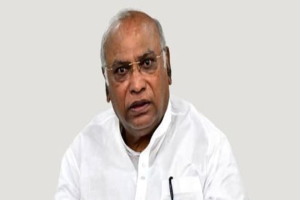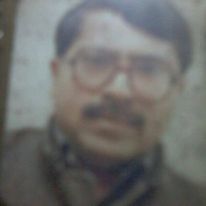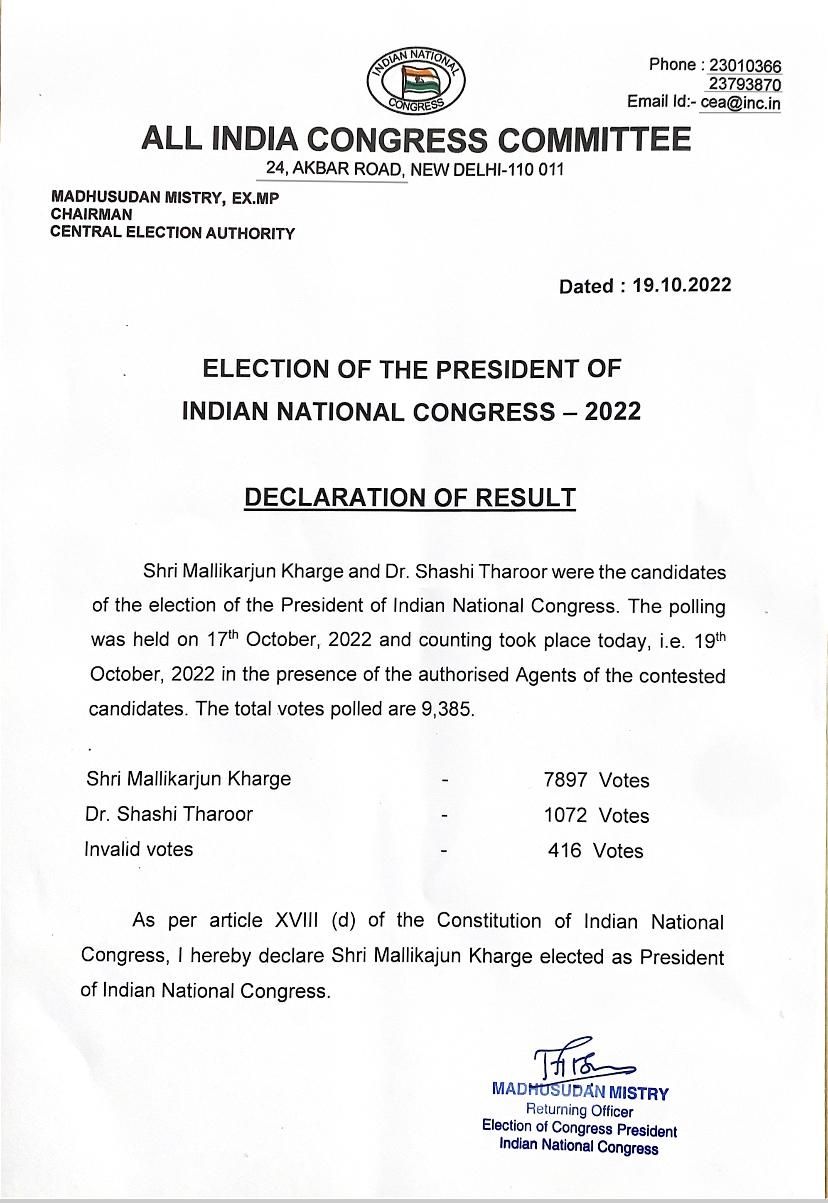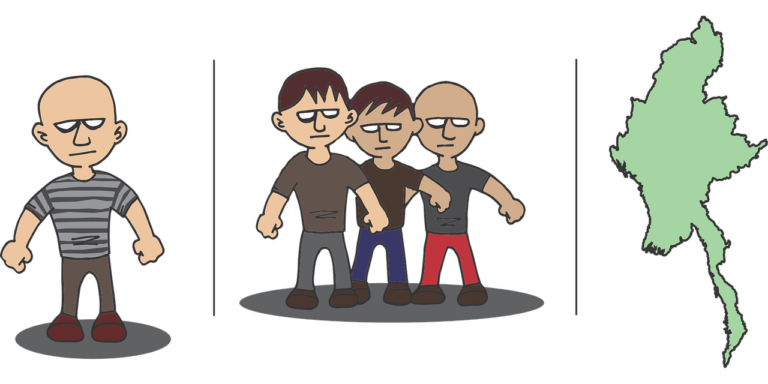
Mallikarjun Kharge
 By G Krishna Mohan Rao*
By G Krishna Mohan Rao*
New Delhi: It is said that at the age of seven Mallikarjun Kharge saw his mother and sister burnt alive inside their house by the private army of Nizam of Hyderabad. Little Kharge had to leave their village Varavatti in Bidar district in Karnataka with his father forever.
Today the senior Congress leader Kharge was elected the new president of the Congress Party to become the first non-Gandhi to lead the party in 24 years.
The result was announced here at the party headquarters this afternoon by the Congress Party’s Central Election Authority Chairman, Madhusudan Mistry. Of the 9,385 votes polled in the Congress presidential election, Kharge got 7,897 votes, while the other candidate Shashi Tharoor received 1,072 votes while 416 votes were found invalid. Interestingly, this was only the sixth time in its 137-year-old history that an electoral contest decided who would take up the mantle of the party’s president. Kharge succeeds Sonia Gandhi.

For Kharge, a Dalit, to lead the party at a time when it is going through an identity crisis, is significant. The result was on the expected lines as Kharge was found to be a strong favourite with his perceived proximity to the Gandhis and a large number of senior leaders backed him as they felt he was the Gandhi family’s candidate.
Kharge’s loyalty towards Congress and the Gandhi family never had a dent. Before the party president’s poll, Kharge had said he would have no shame in taking the advice and support of the Gandhi family in running the party affairs if he becomes its president. This statement amply makes it clear that Kharge would run the show as per the wishes of the Gandhi family.
It took five decades for Kharge to reach the high pedestal to come closer to Gandhis. He made his political entry in 1972 as an MLA from Karnataka but had to wait 50 years. Though nine-time MLA, Kharge’s political career always had missed opportunities. He could not become the Chief Minister of his home state, Karnataka. However, he was elected to Lok Sabha twice in 2009 and 2014 and became a Union minister.
With the Congress Party, today in a bad position and desperate for revival, the challenges before Kharge are plenty and he will have to prove his mettle by the time Lok Sabha elections are due in May 2024. Before that, by next June his own state Karnataka would be facing assembly elections.
Significantly, there is a jubilant mood in the Congress cadres that a loyal Congressman was rewarded that too in a contested election with a huge margin. Normally election for the top post in the Congress Party is based on consensus and in its history of 137 years, there were elections only five times before this.
It was way back in 1939 when an electoral contest decided who would be the Congress president and in fact, Mahatma Gandhi’s candidate Pattabi Sitaramaih had lost to Netaji Subhash Chandra Bose. Then in 1950 came the Congress’ first post-independence election for the post of party president when Purushottam Das Tandon and Acharya Kripalani faced off. Surprisingly, Tandon seen as Sardar Vallabhai Patel’s loyalist, won the contest, trumping the then Prime Minister Jawaharlal Nehru’s choice.
In 1977, following the resignation of Dev Kant Barooah as party president in the wake of the Congress defeat in the Lok Sabha polls, K Brahmananda Reddy defeated Siddhartha Shankar Ray and Karan Singh in the party’s polls for All India Congress Committee chief. The next election that needed a contest came 20 years later in 1997 when Sitaram Kesri squared off in a triangular contest with Sharad Pawar and Rajesh Pilot. Except for Maharashtra and parts of Uttar Pradesh, all state Congress units had backed Kesri. He posted a landslide victory, getting 6,224 delegates’ votes against Pawar’s 882 and Pilot’s 354.
The fifth contest came in 2000 and this was the only time a Gandhi family member was challenged in the elections with Jitendra Prasad taking on Sonia Gandhi. Prasada suffered a crushing defeat at the hands of Gandhi, who garnered over 7,400 votes. Prasada had reportedly polled just 94 votes. The current polls are historic as the new president would replace Sonia Gandhi, the longest-serving party president who has been at the helm since 1998, barring the two years between 2017 and 2019 when her son Rahul Gandhi had taken over.
*Senior journalist





